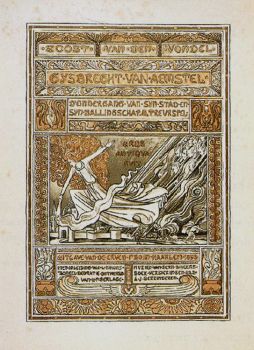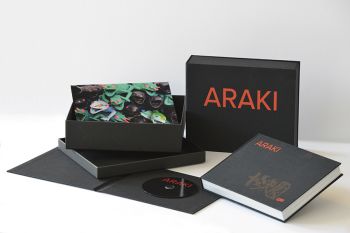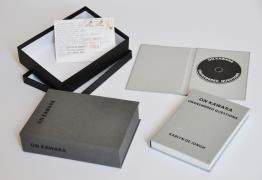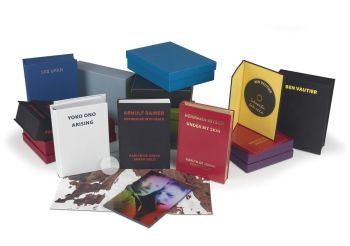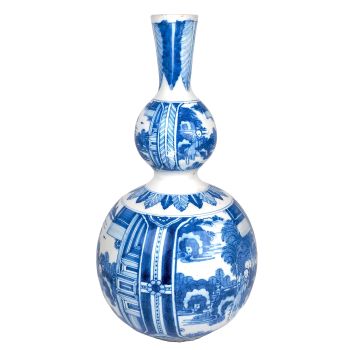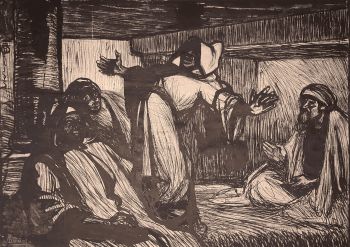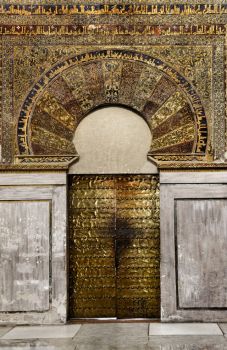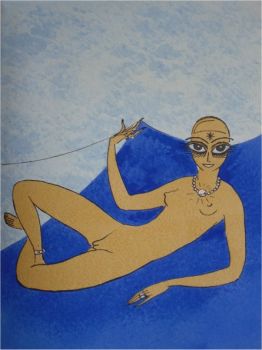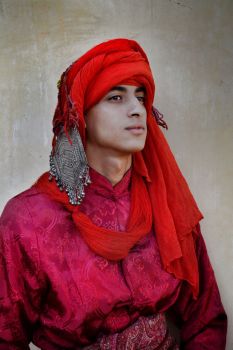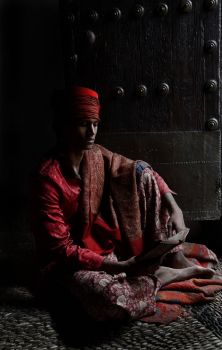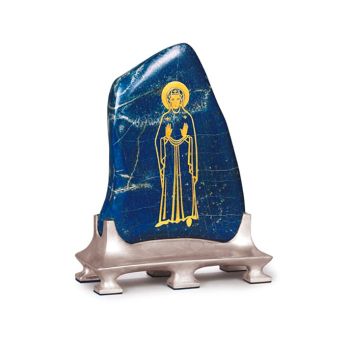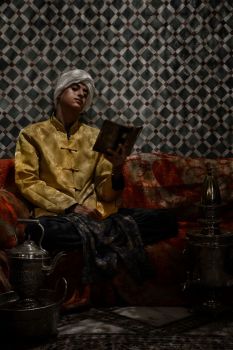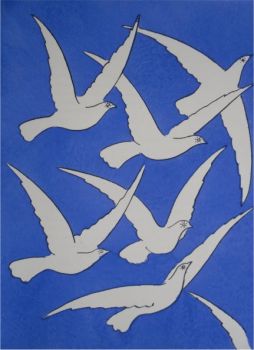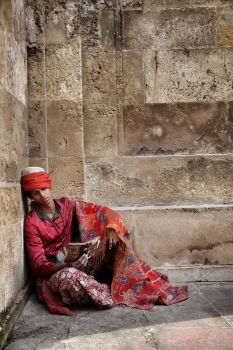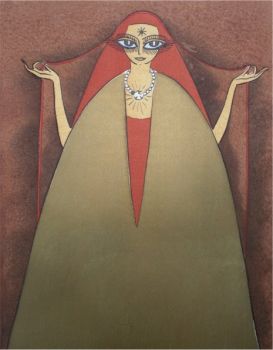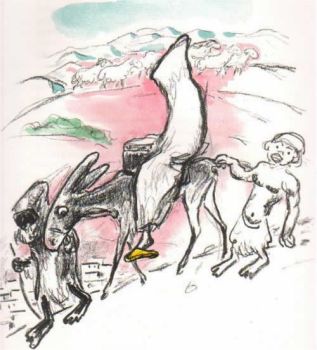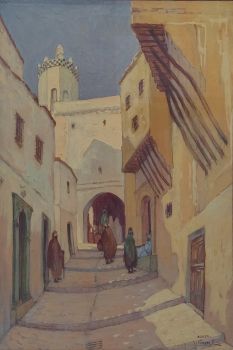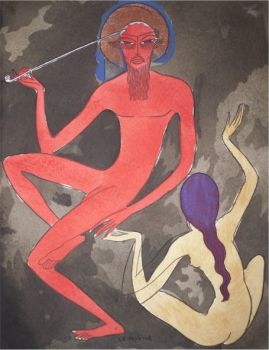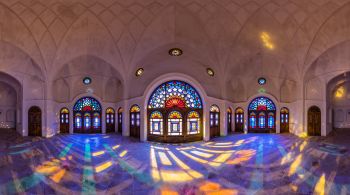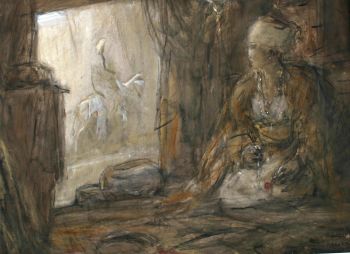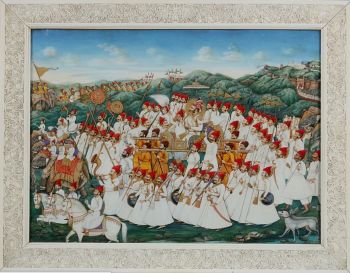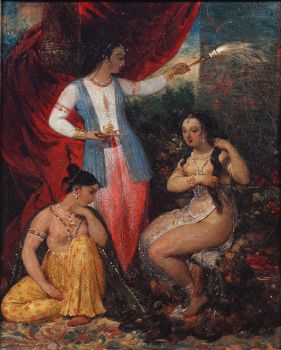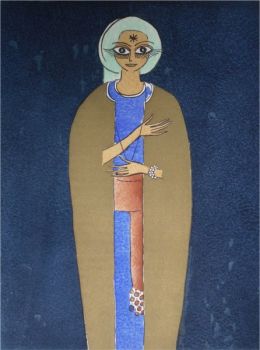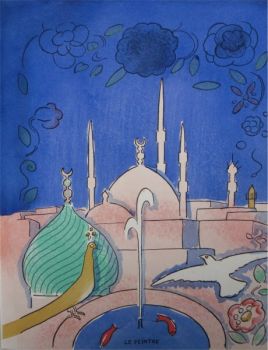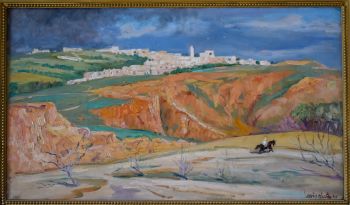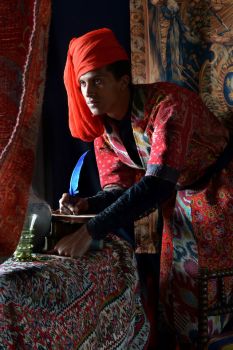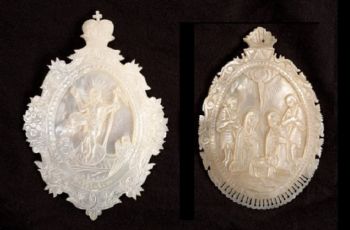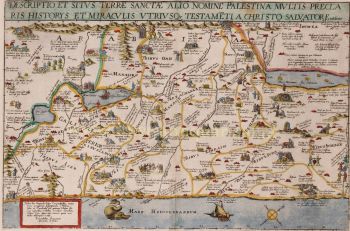Instructions for Carsten Niebuhr's expedition to Arabia 1774
Johann David Michaelis
Attualmente non disponibile tramite Gallerease
- A proposito di opere d'arteRecueil de questions, proposées à une société de savants, qui par ordre de Sa Majesté Danoise font le voyage de l'Arabie.
Amsterdam, S.J. Baalde; Utrecht, J. van Schoonhoven & comp., 1774. 4to. Set in roman type with incidental Greek, Hebrew, Arabic, Syriac and 1 word in Coptic. Near-contemporary tanned sheepskin, gold-tooled spine.
Hans Bernhard Merian's French translation of Michaelis's Fragen an eine Gesellschaft gelehrter Männer (1762), prepared during the early stages of Carsten Niebuhr's Danish expedition to the Middle East. It is the first edition in any language to be printed in the Netherlands. Johann David Michaelis, a famed German Orientalist and theologian, was one of the scholars who prompted the important Danish expedition to Egypt, Arabia and Syria (1761-1767), led by Carsten Niebuhr. Michaelis hoped to investigate the relationship of the southern Arabic dialects to Hebrew, and to verify obscure botanical and zoological information in the Bible. For this purpose he composed the present 100 "questions". It includes the instructions for the expedition by Frederick V of Denmark, a 35-page account of Yemen and an extract of Carsten Niebuhr's account of Arabia (not included in the first French edition of 1763).
Back of first free endleaf with traces of removed bookseller's(?) ticket. With an occasional small rust spot, but otherwise in very good condition and only slightly trimmed, leaving large margins. Binding with minor suface damage and wear at the hinges and extremities, but otherwise also very good. Important preparatory studies concerning Egypt, Arabia and Syria, written and first published during the early stages of a voyage.
Chadenat 1933; Gay, Bibl. de l'Afrique en de l'Arabie 3366; STCN (3 copies); Macro, Bibliography of the Arabian Peninsula 1593. - A proposito di opere artistaJohann David Michaelis era un famoso orientalista e teologo tedesco, fu uno degli studiosi che diedero impulso all'importante spedizione danese in Egitto, Arabia e Siria (1761-1767), guidata da Carsten Niebuhr. Michaelis sperava di indagare sulla relazione dei dialetti arabi meridionali con l'ebraico e di verificare oscure informazioni botaniche e zoologiche nella Bibbia. Michaelis è nato a Halle an der Saale ed è stato addestrato alla vita accademica sotto gli occhi di suo padre. Ad Halle fu influenzato, soprattutto in filosofia, da Siegmund J. Baumgarten (1706–1757), legame tra l'antico Pietismo e J. S. Semler, mentre coltivò il suo forte gusto per la storia sotto il cancelliere Ludwig. Nel 1739-1740 ottenne la cattedra universitaria. Una delle sue dissertazioni era una difesa dell'antichità e dell'autorità divina dei punti vocalici in ebraico. La sua erudizione si muoveva ancora lungo le vecchie linee tradizionali, ed era anche molto esercitato da certi scrupoli religiosi, con alcuni che vedevano un conflitto tra la sua mente indipendente e quella di sottomissione all'autorità - incoraggiata dal luteranesimo in cui era stato formato - che colpiva il suo ragionamento. Una visita in Inghilterra nel 1741-1742 lo sollevò dallo stretto solco della sua precedente educazione. Passando per i Paesi Bassi conobbe Albert Schultens, la cui influenza sulle sue concezioni filologiche divenne onnipotente pochi anni dopo. A Halle Michaelis si sentiva fuori posto e nel 1745 accettò volentieri un invito a Gottinga come Privatdozent. Nel 1746 divenne professore straordinario, nel 1750 ordinarius, e vi rimase fino alla morte nel 1791 a Gottinga.
Artwork details
Related artworks
Antonie Derkinderen
Memory book Exhibition of Dutch Painting1892
Prezzo su richiestaKunsthandel Pygmalion
Engelbert Kaempfer
IL LIBRO DI ENGELBERT KAEMPFER1651 - 1716
Prezzo su richiestaZebregs & Röell - Fine Art - Antiques
Tilmanus Nicolaus Maastricht
Missale Romanum con fornimenti d'argento olandesi1788 - 1792
Prezzo su richiestaJacob J. Roosjen SRI
Yoko Ono
YOKO ONO: "ARISING" SIGNED BOOK PLUS SMALL ARTWORK 2010 - 2014
Prezzo su richiestaGallerease Selected
LAWRENCE WEINER
"SKIMMING THE WATER [MENAGE A QUATRE]" Signed book plus small artwork2010 - 2014
Prezzo su richiestaGallerease Selected
Engelbert Kaempfer
IL LIBRO DI ENGELBERT KAEMPFER1651 - 1716
Prezzo su richiestaZebregs & Röell - Fine Art - Antiques
Tilmanus Nicolaus Maastricht
Missale Romanum con fornimenti d'argento olandesi1788 - 1792
Prezzo su richiestaJacob J. Roosjen SRI
1 - 4 / 22Elisabeth Treskow
Lapislazzuli afgano intarsiato con oro su un supporto d'argento1950 - 1960
Prezzo su richiestaJacob J. Roosjen SRI
Artista Sconosciuto
IMPORTANTE E RARO GRANDE DIPINTO INDIANO "COMPANY STYLE" SU AVORIO RAFFIGURANTE UNA SFILATA1850 - 1900
Prezzo su richiestaZebregs & Röell - Fine Art - Antiques
 A cura di
A cura diDanny Bree
1 - 4 / 24

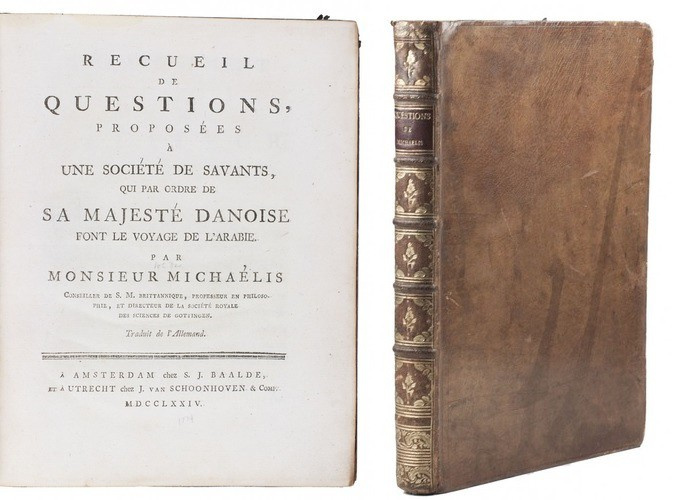



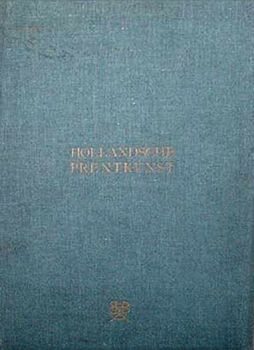
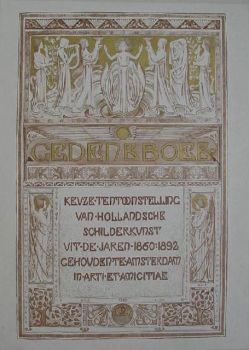
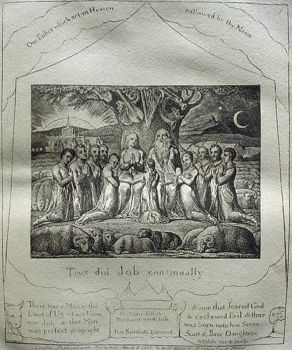
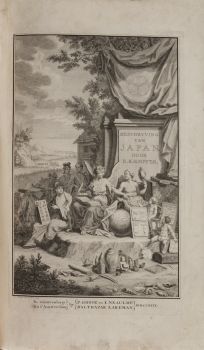
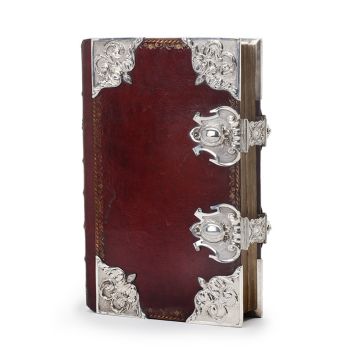
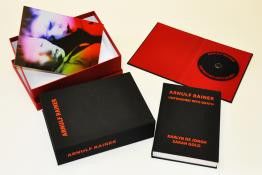

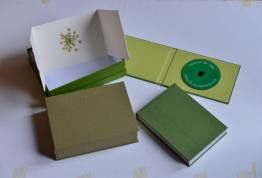
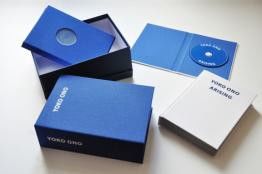
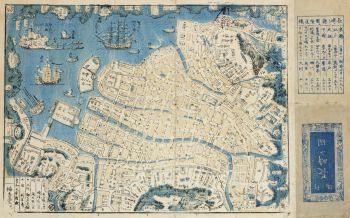
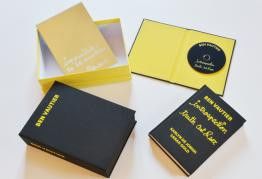
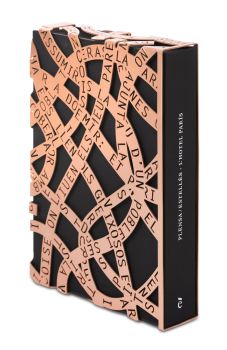
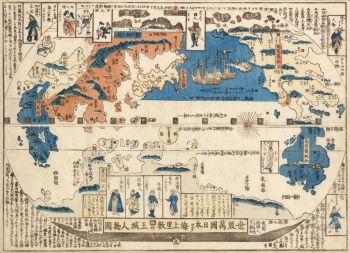
!["SKIMMING THE WATER [MENAGE A QUATRE]" Signed book plus small artwork by LAWRENCE WEINER](https://media-2.gallerease.com/images/442bfd5f-fc31-4e18-a2fa-ee0c08eade64/350x350/skimming-the-water-menage-a-quatre-signed-book-plus-small-artwork.jpg)

